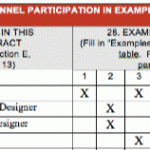I think we can all agree that getting meetings with busy people, let’s not mince words, feels impossible.
But ultimately, it’s not. It’s just that 99.99% of people go about it completely the wrong way.
That’s why today I’m going to show you exactly how I’ve arranged meetings with busy high-level officials and business owners. One even apparently blew off a congressional committee to meet with me. Plus, I’m going to give you the exact word-for-word scripts I use to accomplish this.
But first let me explain why so many people fall flat on their face when trying to set up meetings with clients.
Do Unto Others
If you are anything like me, you are busy. Frankly, there’s no way I can complete everything I want to get done.
Yet, people go to great lengths to meet with me. They want to sell me stuff: branded products, telemarketing, directory listings, advertisements, etc.
Much of this is screened. I never see or hear it. My powerful junk filter or receptionist/office manager makes sure these people don’t get through.
But every once in a while, I’ll get a message like this:
“Hi, this is Bob from Directory Online. I’m calling because I was under the impression you provided (service my firm provides). Please give me a call at (some phone number).”
Inevitably, that exact same call will come in a couple times a month.
Seriously?
I know exactly what you’re trying to do. You are trying to sell me a directory listing. And you are the one millionth person wanting to sell me a directory listing.
And how you are going about it really turns me off. You sound like the evil, manipulative salesman persona every person hates.
I can smell sleazy sales tactics a mile away. We all can, right? If there is one thing us humans are great at it’s identifying a sales pitch a mile away.
The last thing I want to do is take time out of my busy schedule to hear your pitch!
Don’t pitch me your product or service.
Get Meetings With Busy People
The only hope you have of getting meetings with truly busy people, like me or you, is to:
Contact them with the express purpose of giving them something so helpful that they would be foolish to pass it up.
Be concise, specific, sincere, and forthright about who you are, how you got their name, and what you are asking them to do.
Make it easy for them to say yes.
Make My Life Easier
Let’s go back to Bob. He’s trying to sell me a directory listing.
Sure, I’ve used directories like Angie’s List to buy services (pour concrete, fix my roof, etc). But frankly, with so many out there aimed at professional services, I don’t know which ones are worth it and which ones are a waste of our money. And we can’t afford a listing with all of them.
So, what can Bob give me that I would be foolish not to want?
What if he offered to give me three case studies on how direct competitors I’ve heard of are gaining new customers using directory listings?
Bob has now offered me something that I’d be foolish not to take. That’s a step in the right direction. But it’s not that easy to get time with me. The truth is, I still probably wouldn’t take that call.
Why should I trust him? My “sales detection” guard is still up. Plus, he hasn’t made it easy for me to say yes.
Specificity Breeds Believability
To get me to yes, you have to give me a comfort level that I’m dealing with someone who is honest and truly has my interest at heart.
Therefore, Bob needs to get specific. Who is he? How did he get my name? What exactly is he offering me? What exactly does he want me to do? Exactly how much of my time is this going to take (I always use 15 minutes…people assume you’ll waste an hour of their time if you are not specific)?
Specificity breeds believability. If Bob is not specific, I’m not going to trust him. But he better also be concise because I’ll read for 30 seconds if he is lucky.
Only Two Possible Responses
In addition to that, Bob has to make my life easy. That means only giving me two ways I can answer: yes or no.
I huge problem I see with emails is there is no clear call to action. What does the sender want me to do? How do they want me to respond?
Ultimately, when sending emails, you want to frame it in a way that the email can be responded to with a simple yes or no answer.
Step One: Use My Exact Word-For-Word Scripts For Getting Meetings With Important People
Before I get into my exact scripts, I should let you know that I didn’t come up with this on my own. My script is slightly a modified version of a script from Ramit Sethi, a successful web entrepreneur who was studied at Stanford’s Persuasion Lab.
I highly recommend you buy his ebook on email scripts if you truly want to understand the psychology of email and how to write emails that work.
I have no affiliation with Ramit whatsoever, but I tell people buying his email scripts ebook is likely the best $100 I’ve ever spent.
Anyway, my scripts are comprised of three emails.
Email Number 1 – Usually Sent On Tuesday
Hi [FIRST NAME],
[HOW YOU GOT THEIR NAME | Example: Bob Johnson recommended that I reach out to you] My name is [YOUR NAME] and I’m with [FIRM NAME].
I know [SOMETHING SPECIFIC YOU KNOW ABOUT YOUR TARGET | Example: you’re building a new surgery wing]. I thought you might find it helpful to exchange notes on [SOMETHING THEY’ll WANT TO KNOW ABOUT | Example: the current trends in surgery suite design.]
Would you be open to a 15-minute [PHONE CALL | MEETING]?
There are a few very important things you have to understand about this email:
It is very casual, probably more casual than you are used to. Using formal writing in your emails will only set you up for failure. Marketing emails written in a formal style are not showing respect, they are showing stupidity.
It is short and to the point, less than 100 words. It can be read by a busy person in less than 30 seconds.
There are only two possible answers: yes or no.
Email Number 2 – Sent To Non-Responders Three Days After Email #1
People will often send the initial email and think, “OK, now the ball is in their court.” Not true. The ball is still in your court.
Don’t assume you’ll get a response to that initial email. Instead, assume you WON’T get a response. So, Email number two is really the critical email.
I typically send it three days after email number 1. And I do this by, very important, forwarding the initial email and including the following script.
Hi [FIRST NAME],
I’m just checking in to see if you got my last email (copied below). It should take just a sec to review, and I’d love [THE ANSWER YOU WANT FROM THEM].
Again, you’ll notice that it is super short and super casual. Don’t be a fool and change “sec” to “second.”
Remember: Marketing emails written in a formal style are not showing respect, they are showing stupidity. CLICK TO TWEET THIS
Send that email up to three times (every three days). This is where 80% of the time, you’ll find success.
Email Number 3 – Sent To Responders
Ok, now you’ve got a response. And this person has actually committed to a 15-minute meeting.
But the ball is still in your court. You have to make the scheduling of this meeting extremely easy. So, you send this.
Great, would any of these times work?
- Wednesday [Date 1] all day
- Thursday [Date 2] anytime after [TIME]
- Friday [Date 3] anytime after 1pm [TIME]
If these dates don’t work, just let me know — We can work around your schedule.
I can [CALL YOUR OFFICE LINE| MEET YOU AT YOUR OFFICE]. Or if you’d prefer, [WE CAN MEET AT ____ | MY PHONE NUMBER IS (NUMBER)].
If they don’t respond to that, hit them with email number 2 again.
Step Two: Deliver
The second step is very important. You simply have to deliver on what you promised.
You only have 15-minutes, so make sure you lead with the most useful information. This meeting is about them, not you.
The purpose of the first meeting is:
- To provide them with useful information.
- To gather information about the person’s needs and/or challenges.
- Agree to a concrete next action.
It is important that you do not pitch your firm at this meeting. You can tell short stories if they relate to the topic at hand.
At the 15-minute point, stop the meeting and say:
“It looks like we’ve already reached the 15-minute mark. I want to be respectful of your time, but we can certainly continue if you’d like.”
It’s A Different Approach, But It Works
I’m constantly shocked at how effective this approach is. Sure, it doesn’t work 100% of the time. Nothing will. But using these email scripts, I’m able to set up meetings with 80%+ of the extremely busy people I email.
Feel free to forward this on to anybody you know who struggles with getting meetings with people. And you can download my entire guide to getting meetings with extremely busy people below.





[…] already provided the exact scripts I use to get meetings with busy people. But I have about 20 email scripts I use for different situations. I have one for following up with […]